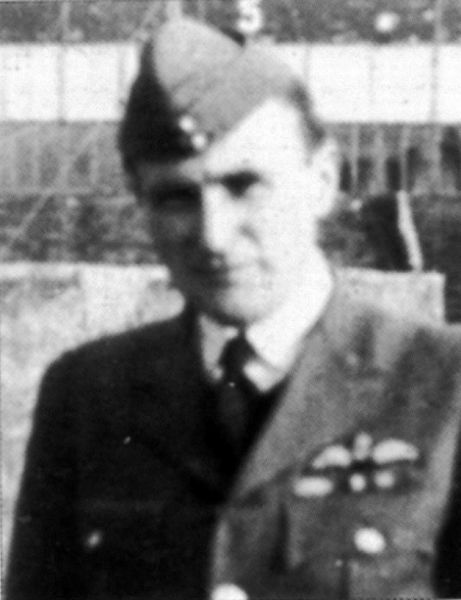Hayes, Thomas Norman
- Date of birth:
- June 26th, 1912 (Walthamstow-northeast London/England, Great Britain)
- Date of death:
- July 17th, 2010
- Service number:
- 90095
- Nationality:
- British
Biography
Promotions:
July 27th, 1936: Pilot Officer (seniority July 5th, 1936);
March 26th, 1938: Flying Officer;
September 3rd, 1940: Flight Lieutenant;
December 1st, 1941: temporary Squadron Leader;
?: Acting Wing Commander;
August 1st, 1946: Squadron Leader;
August 1st, 1957: Retirement.
Career:
July 1936 - 1941: No. 600 (City of London) Squadron;
1941 - 1942: Fighter Interception Unit;
1942 - 1943: Commanding Officer No. 256 Squadron;
1943 - 1944: Commanding Officer RAF West Malling, Kent;?: Deputy Station Commander RAF Biggin Hill;
?: Staff No. 85 Group;
?: Commanding Officer No. 149 wing;
August 1st, 1946: Commanding Officer No. 600 Squadron;
August 1st, 1948: Transfer to Reserves.
Do you have more information about this person? Inform us!
- Period:
- Second World War (1939-1945)
- Rank:
- Flying Officer
- Unit:
- No. 600 (City of London) Squadron, Royal Air Force
- Awarded on:
- May 24th, 1940
"This officer was pilot of one of six aircraft which attacked Rotterdam aerodrome in May, 1940. In company with his commanding officer he destroyed a Junkers 52 on the aerodrome by machine-gun fire. Whilst climbing, after the dive, the formation was attacked by twelve Messerschmitt 110's.
Flying Officer Hayes was unable to see the enemy aircraft himself, but he skilfully manoeuvred his aircraft on instructions from the air gunner. After a short while he sighted a Junkers 52 and although hard pressed by superior numbers of other enemy aircraft and with his own aircraft damaged, Flying Officer Hayes attacked the Junkers 52 with tenacity and determination until it was seen to go down with its port engine on fire.
Breaking, off the engagement and skilfully evading his opponents he made for home but shortly encountered three Heinkel 111's. He courageously attacked with his remaining ammunition and succeeded in breaking up their formation before arriving safely at his
base."
- Period:
- Second World War (1939-1945)
- Rank:
- Acting Wing Commander
- Awarded on:
- January 14th, 1944
- Period:
- Second World War (1939-1945)
Sources
- Photo 1: Tom MacNeill
- - The London Gazette of 10th August 1937, Issue 34425, Page 5123
- The London Gazette of 4th January 1938, Issue 34470, Page 38
- The London Gazette of 17th May 1938, Issue 34511, Page 3201
- The London Gazette of 24th May 1940, Issue 34856, Page 3109
- The London Gazette of 29th October 1940, Issue 34982, Page 6265
- The London Gazette of 16th December 1941, Issue 35383, Page 7121
- Third Supplement to The London Gazette of 11th January 1944, Issue 36329, dated 14th January 1944, Page 287
- Supplement to The London Gazette of 13th September 1946, Issue 37724, dated 17th September 1946, Page 4622
- Supplement to The London Gazette of 12th November 1948, Issue 38456, dated 16th November 1948, Page 6010
- Second Supplement to The London Gazette of 16th October 1953, Issue 39990, dated 20th October 1953, Page 5575
- Second Supplement to The London Gazette of 4th November 1955, Issue 40625, dated 8th November 1955, Page 6285
- Second Supplement to The London Gazette of 11th October 1957, Issue 41202, dated 15th October 1957, Page 6000
- The Telegraph





